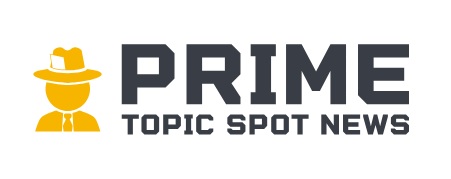A quiet but powerful revolution is brewing across Europe — one that’s not about borders or trade, but about digital independence. As leading U.S. tech companies increasingly align with the second Trump administration, European governments, regulators, and even everyday users are shifting toward digital sovereignty, demanding autonomy over the internet, platforms, data, and technology that shape their lives.
🧭 A New Political Tech Divide
The 2025 re-election of Donald Trump has reignited debates across the Atlantic. Under his renewed “America First” tech doctrine, U.S. platforms are cozying up to Washington’s geopolitical stance, triggering alarm bells across Brussels, Berlin, and Paris.
Top platforms like X (formerly Twitter), Meta, and Google are seen as increasingly influenced by U.S. political priorities. European leaders now fear that these platforms — designed and governed in the U.S. — may no longer operate with neutrality on European soil. That fear is turning into policy.
📢 What Exactly Is Digital Sovereignty?
Digital sovereignty refers to a nation or region’s ability to independently control its digital infrastructure, technologies, and data without depending on foreign platforms or governments. For Europe, this means building alternatives to Google, Amazon, Meta, and other Silicon Valley behemoths that dominate cloud storage, data traffic, search, social media, and AI.
It also means protecting citizens’ digital rights, ensuring data is stored locally, governed by local laws, and not exploited or surveilled across borders.
📉 Public Trust in U.S. Tech Hits New Lows
Across Germany, France, and the Netherlands, recent surveys show that trust in U.S. digital services has sharply declined. Many citizens now view American platforms as vulnerable to political interference — especially after Trump's tech-centric appointments and calls for platform loyalty.
Search engine traffic for European alternatives like Ecosia has surged, with year-on-year growth touching 25%. Encrypted email services such as ProtonMail and Tutanota are also seeing unprecedented spikes in new users.
This isn't just ideological — it’s behavioral. Europeans are beginning to vote with their clicks.
🏗️ Europe’s Infrastructure Response: The Rise of the “EuroStack”
In response, governments across the EU are pouring billions into what’s now being called the “EuroStack” — a complete ecosystem of European cloud services, operating systems, app stores, and AI frameworks.
Germany is backing open-source servers. France is funding AI compute clusters. The Gaia-X cloud initiative, once considered symbolic, is now receiving full government support and private investment.
Meanwhile, the European Commission is actively pushing developers to switch to European cloud providers. They're also strengthening rules to ensure data sovereignty — requiring that personal and corporate data remain within the EU’s legal domain.
🛡️ Strengthening Europe’s Digital Defense
The EU isn’t just building — it’s regulating. The Digital Services Act (DSA) and Digital Markets Act (DMA) are landmark laws already reshaping the European digital ecosystem. These rules limit the power of Big Tech platforms, force transparency on algorithms, and ensure fair competition for European startups.
Now, regulators are also drafting guidelines for Sovereign AI — artificial intelligence developed, trained, and deployed within the EU using regional data. This aligns with calls for each country to have control over its AI development, not rely on black-box models trained overseas.
🧠 Tech Citizenship: Beyond Sovereignty
Beyond infrastructure and law, Europe is rethinking the ethics of technology. A rising school of thought now promotes Tech Citizenship — the belief that tech must empower citizens, protect human rights, and foster democratic engagement.
Rather than merely creating European versions of American tools, policymakers are imagining public-good platforms: open-source social media, transparent AI tools, ethical search engines, and data-sharing structures that put the user in control.
The goal? Not just independence, but values-driven innovation.
💬 Real Voices, Real Sentiment
From grassroots privacy activists in Brussels to data scientists in Lisbon, the tone is clear: Europeans no longer want to outsource their digital lives.
An IT worker in Frankfurt summed it up: “We are finally waking up. It’s not about building a European Google — it’s about building something better, fairer, and transparent.”
🤝 What About U.S.-EU Tech Relations?
Tensions are rising, but cooperation isn’t completely off the table. The Transatlantic Trade and Technology Council (TTC) continues to meet, aiming to create common standards. But after new tariffs from the Trump administration on European digital goods, many in the EU feel betrayed.
Europe is now negotiating from a position of strategic independence, not blind trust.
💰 Investment on the Rise
Europe is putting its money where its mouth is. Countries like:
France – investing €4 billion in national data centers and sovereign AI
Germany – pushing €2.7 billion toward local cloud ecosystems
Spain and Italy – launching national cyber shields and encrypted government messaging platforms
Even smaller nations like Estonia and Finland are building state-backed platforms for digital ID, payments, and education.
📉 Still a Long Way to Go
Despite the ambition, there are clear hurdles. U.S. firms still dominate over 80% of data traffic, cloud computing, and mobile OS usage in the EU.
Creating world-class alternatives will require:
Years of investment
Widespread user adoption
Political unity across member states
And most of all, patience
Europe may have the moral compass — but Silicon Valley still holds the tools.
🔮 What Does the Future Hold?
If Europe succeeds, the digital world order could shift. Citizens would use tools designed in their own cultural, legal, and ethical frameworks.
Data would stay within Europe’s borders.
AI would reflect European languages and values.
Platforms would be run like public utilities — not ad-driven monopolies.
If it fails, Europe risks becoming a tech colony, using tools it cannot control, governed by laws it cannot influence.
✅ Final Take: Sovereignty Is Not Optional
In 2025, digital sovereignty is no longer a debate — it’s a necessity. With rising political tensions, economic nationalism, and technological disruption, Europe must chart its own digital path.
Whether you're a policymaker, developer, or digital citizen — now’s the time to choose. Independence in the digital realm may well define independence in every other domain for the next generation.
















Comments 0